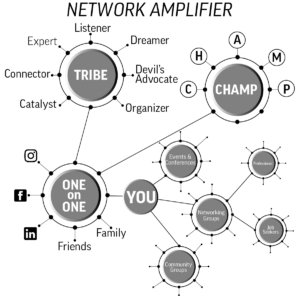 “I keep getting interviews, but no offers.” This statement is usually followed by the asked, or implied, question, “why?”. You’ve been searching for weeks that have turned into months. You are getting multiple invitations to interview. Perhaps, you have made it into the second and third round of interviews…multiple times…only to be told no. This is frustrating, to say the least. It is demoralizing. It can be depressing! (need help to stay motivated? Read How do you stay motivated during a job search)
“I keep getting interviews, but no offers.” This statement is usually followed by the asked, or implied, question, “why?”. You’ve been searching for weeks that have turned into months. You are getting multiple invitations to interview. Perhaps, you have made it into the second and third round of interviews…multiple times…only to be told no. This is frustrating, to say the least. It is demoralizing. It can be depressing! (need help to stay motivated? Read How do you stay motivated during a job search)
Let’s do a little digging.
You’ve applied to dozens of jobs. You’ve been invited to interview multiple times. First question, how many times have you made it past the initial screening interview? If you are consistently being screened out of the process at the first interview, the problem may be your resume…well, better stated, the problem may be a disconnect between the story your resume tells and the story you are telling in the interview.
Don’t get me wrong, I am not saying the disconnect is intentional. The mere fact that your resume is getting selected for a screening interview, tells me your resume is a great match for the jobs to which you are applying. Think back over those interview conversations. Were you prepared? What story did your responses tell? Was the interview by phone, by video, or in-person? What went well? What didn’t?
You may be applying for the wrong jobs
There are two basic approaches to conducting a job search: shotgun and laser. In the shotgun approach, you are blasting your resume out to just about every job opening you see. If your resume is in decent shape and the keywords are generic in nature, you are sure to pass through many applicant track systems and be presented for human review. This is sure to land you your share of first interviews.
Ask yourself, are the jobs you are interviewing for really jobs you want? You may need a job, that is a fact. Are you really a fit for the job? The interviewer has been trained to weed out the mismatches. That is their job.
Is the job one that aligns with your strengths, values, passions, and purpose? If not, it may be difficult for you to show interest and excitement in the position. If you can’t envision yourself working at that company, performing that job, chances are the interviewer won’t be able to envision it either.
What about your presentation?
No, I am not talking about using PowerPoint or Keynote during a job interview. I am talking about how you presented yourself.
Phone: Was the audio clear and crisp? Were you in a quiet place, away from distractions and interruptions? Did you use a headset, instead of holding your phone to your ear, or worse, yet a speakerphone? Poor audio could result in a poor connection, literally!
Video: Think about the audio connection just as you would for a phone interview. Go a step further and think about your surroundings? Will the video quality be adequate, with adequate bandwidth? Is the lighting sufficient (you don’t want to look like you are in witness protection nor under intense interrogation)? What other things are in view of the camera? Do they depict the “you” you want the interviewer to see? Don’t use the virtual background feature of the video call platform, they can be distracting. Finally, how do you appear in the video? Do you make eye contact with the camera (not the image on the monitor)? Do you lean in or slouch back. Approach it like you would an in-person interview. Speaking of an in-person interview…
In-person: How are you dressed? In this time of more and more casual attire at work, this can be tricky to navigate. You want to dress to fit in, not necessarily to match. Let me explain. If the company is business attire, done. Wear a suit (suit, pants- or skirt-suit). Otherwise, dress a notch above the company dress code. If the company is business casual, consider a suit, at the very least dress at the top end of business casual with a jacket. If the company is casual, dress business casual. Even if they wear flip-flops, shorts, and rock t-shirts to work…don’t!
And, what of your skills?
Be honest with yourself, brutally honest. How do you come across in an interview? Interviews are among the toughest meetings we ever have as professionals. You are on display. You are the focal point. You may need a job. You may really need a job. It can be stressful. Our anxiety can be on full display.
One word: rehearse, rehearse, rehearse! Ok, technically that was three words, but you get the point. Rehearse in front of a mirror. Rehearse in front of a friend, family member, or colleague. Rehearse in front of a stranger. Introduce yourself first or that could be awkward! Kidding! Reach out to a professional network or job seekers network and ask about mock interviews. Even the most veteran of professional can use some rehearsals with candid feedback!
Are you selling?
The answer is yes! If you are not, you should be! This is a balancing act. You want to come across humbly-confident, not arrogant, or braggadocious. However, you are selling product…that product is YOU! As in all selling, the buyer has a problem. You have a solution. That solution is YOU!
Rehearsing can help a lot in this area as well. Go beyond just rehearsing. Review your resume. What stories does it tell? Which stories apply to the interviewer? Tell the stories that solve their problem.
We are taught the use of the word “I” should be avoided (as-in I did this or I did that). An interview is not the time to use the word “we”. If you are describing a situation in which a team accomplished something, state that it was the team, of course. However, be sure to include your specific role in contributing to the success.
Preparation is vital!
Are you prepared for the interview? Even an initial screening interview should be treated as a final interview. Research the company. Know the interviewers. Understand the company’s competition.
As you do this research, think of questions to ask during the interview. Make these questions about the company, the interviewer, or the competition…not about the benefits you may receive! Never-ever ask what the company does, know what the company does.
Be prepared with your answers to their questions. When asked, “tell me about yourself”. Do not recite your resume verbatim. The interviewer can read. Summarize your accomplishments (the accomplishments that solve their problems).
Leverage Glassdoor to learn about their interview process and some of the questions they may ask. Be prepared to answer them. Rehearse your answers…out loud!
If there is a question you hate to answer, be prepared to answer it! Rehearse your answer until you cannot get it wrong! Turn a negative into a positive!
Beyond the first conversation
If you are bringing your “A” game to interviews in these five areas, I have no doubt you will move forward in the process…and soon!
Next time: If you are making it to the final round of interviews and still aren’t getting an offer, I will offer some strategies to help you get that offer in hand!
Have a question? Send it to me at [email protected] and I will be glad to share my thoughts.
Many of these ideas are featured in my new book, Amplify Your Job Search – Strategies for Finding Your Dream Job! Learn more and order your copy by clicking on the cover:





